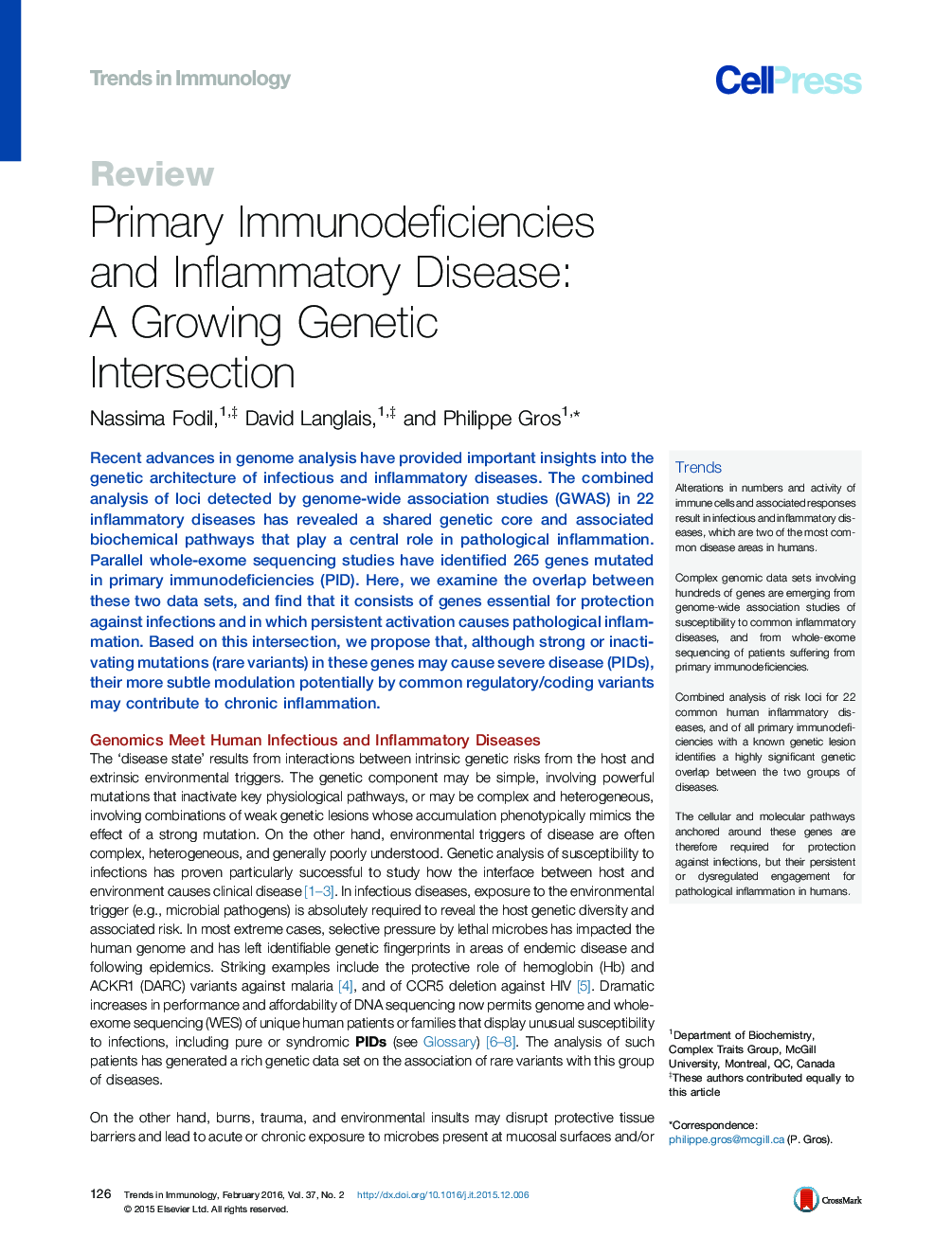| Article ID | Journal | Published Year | Pages | File Type |
|---|---|---|---|---|
| 4359751 | Trends in Immunology | 2016 | 15 Pages |
Recent advances in genome analysis have provided important insights into the genetic architecture of infectious and inflammatory diseases. The combined analysis of loci detected by genome-wide association studies (GWAS) in 22 inflammatory diseases has revealed a shared genetic core and associated biochemical pathways that play a central role in pathological inflammation. Parallel whole-exome sequencing studies have identified 265 genes mutated in primary immunodeficiencies (PID). Here, we examine the overlap between these two data sets, and find that it consists of genes essential for protection against infections and in which persistent activation causes pathological inflammation. Based on this intersection, we propose that, although strong or inactivating mutations (rare variants) in these genes may cause severe disease (PIDs), their more subtle modulation potentially by common regulatory/coding variants may contribute to chronic inflammation.
TrendsAlterations in numbers and activity of immune cells and associated responses result in infectious and inflammatory diseases, which are two of the most common disease areas in humans.Complex genomic data sets involving hundreds of genes are emerging from genome-wide association studies of susceptibility to common inflammatory diseases, and from whole-exome sequencing of patients suffering from primary immunodeficiencies.Combined analysis of risk loci for 22 common human inflammatory diseases, and of all primary immunodeficiencies with a known genetic lesion identifies a highly significant genetic overlap between the two groups of diseases.The cellular and molecular pathways anchored around these genes are therefore required for protection against infections, but their persistent or dysregulated engagement for pathological inflammation in humans.
